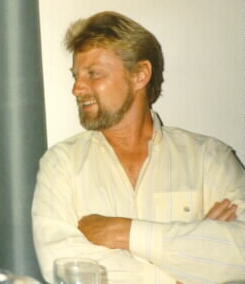 The IEEE Milestones in Electrical Engineering and Computing program honors significant technical achievements in all areas associated with IEEE. It is a program of the IEEE History Committee, administered through the IEEE History Center.
The IEEE Milestones in Electrical Engineering and Computing program honors significant technical achievements in all areas associated with IEEE. It is a program of the IEEE History Committee, administered through the IEEE History Center.
IEEE has formally approved a Milestone recognizing UW CSE alumnus Gary Kildall for the creation of CP/M. The Milestone plaque will be installed in the sidewalk at 801 Lighthouse Avenue in Pacific Grove CA, home of Gary’s Digital Research office, in a ceremony on April 25 2014. The plaque will read:
Birth of the PC Operating System, 1974
Dr. Gary A. Kildall demonstrated the first working prototype of CP/M (Control Program for Microcomputers) in Pacific Grove in 1974. Together with his invention of the BIOS (Basic Input Output System), Kildall’s operating system allowed a microprocessor-based computer to communicate with a disk drive storage unit and provided the software foundation for the personal computer revolution.
As a student at the University of Washington, Gary received three degrees: a Bachelor’s degree in Mathematics in 1967, a Master’s degree in Computer Science in 1968, and a Ph.D. in Computer Science in 1972. He was hired as an assistant professor at the Naval Postgraduate School in Monterey, and later joined Intel Corporation to write programming tools for the Intel 4004 microprocessor.
A pioneer in the computer revolution, Gary developed CP/M, which became the dominant microcomputer operating system of the 1970s. He was one of the first people to recognize that even the early, simple microprocessors could support a complete minicomputer-style operating system, and he created an editor, assembler, linker, and loader, along with the first file system to use floppy disks as a general-purpose storage medium. As personal computers began to be used, he saw that their true potential would be in connectivity, so he developed extensions to CP/M that let computers share files and peripheral devices over a network.
Gary’s company, Digital Research, Inc., introduced operating systems with windowing capability, preemptive multitasking, and menu-driven user interfaces years before Apple and Microsoft. He also created the first practical open-system architecture, which allowed operating systems and application programs to be independent of the specific machines on which they ran. A firm believer that life and work should be fun, Gary also developed an early computer-based arcade game as well as precursors to current interactive multimedia.
Gary passed away in 1994, at the age of 52. Recognition of his extraordinary accomplishments has increased with his inclusion in the wonderful 2004 book and PBS television series They Made America – brief excerpt from the detailed Kildall chapter here. Previous tributes here, here, and here. Recent Facebook tribute page, “Legacy of Gary Kildall,” here.
(Interesting bit of history: Tim Paterson, whose QDOS was purchased by Microsoft as the foundation for MS-DOS when IBM came knocking, also is a UW CSE alumnus – B.S. ’78. So whichever OS IBM chose, it was going to be an OS written by a UW CSE alumnus.)

